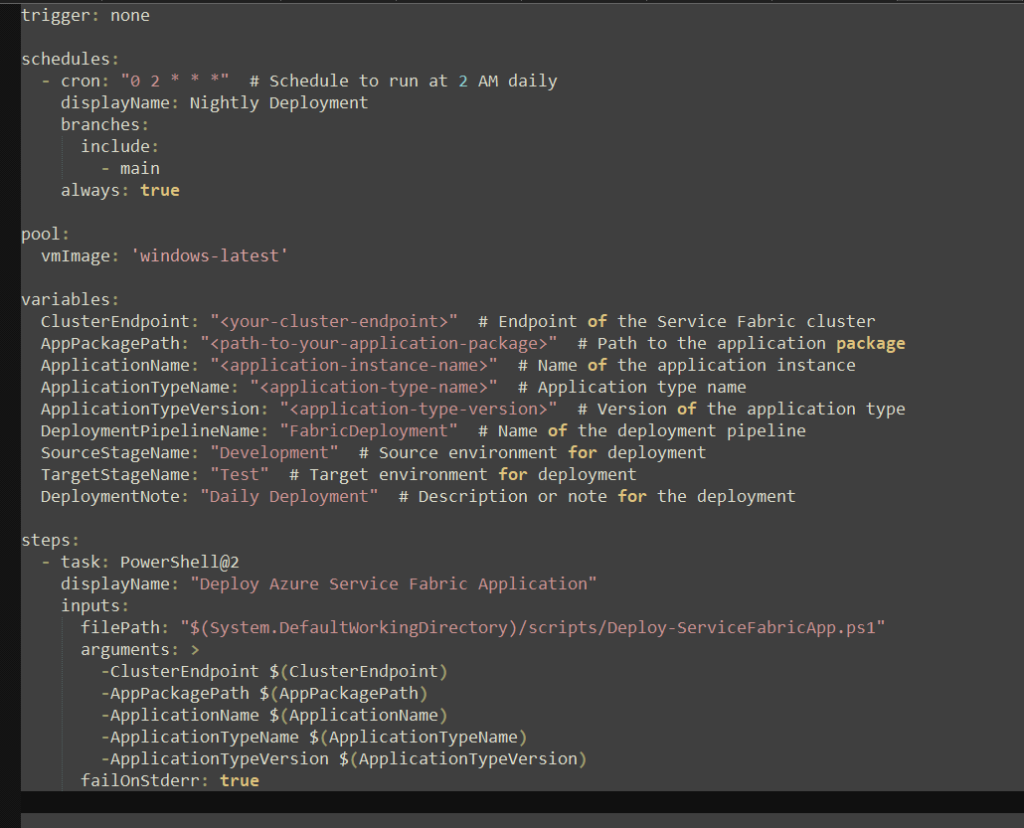In this article, we’ll are being very serious and will discuss how to set up a DevOps schedule to call a PowerShell script for deploying an Azure Service Fabric application.
Previously, we created a pipeline to promote changes across Development, Test, and Production workspaces. However, a robust Application Lifecycle Management (ALM) process requires more automation. This time, we’ll use scheduled PowerShell scripts in Azure DevOps to streamline deployment tasks.

s
DevOps YAML Pipeline for Scheduled Deployment
trigger: none
schedules:
– cron: “0 2 * * *” # Schedule to run at 2 AM daily
displayName: Nightly Deployment
branches:
include:
– main
always: true
pool:
vmImage: ‘windows-latest’
variables:
ClusterEndpoint: “<your-cluster-endpoint>” # Endpoint of the Service Fabric cluster
AppPackagePath: “<path-to-your-application-package>” # Path to the application package
ApplicationName: “<application-instance-name>” # Name of the application instance
ApplicationTypeName: “<application-type-name>” # Application type name
ApplicationTypeVersion: “<application-type-version>” # Version of the application type
DeploymentPipelineName: “FabricDeployment” # Name of the deployment pipeline
SourceStageName: “Development” # Source environment for deployment
TargetStageName: “Test” # Target environment for deployment
DeploymentNote: “Daily Deployment” # Description or note for the deployment
steps:
– task: PowerShell@2
displayName: “Deploy Azure Service Fabric Application”
inputs:
filePath: “$(System.DefaultWorkingDirectory)/scripts/Deploy-ServiceFabricApp.ps1”
arguments: >
-ClusterEndpoint $(ClusterEndpoint)
-AppPackagePath $(AppPackagePath)
-ApplicationName $(ApplicationName)
-ApplicationTypeName $(ApplicationTypeName)
-ApplicationTypeVersion $(ApplicationTypeVersion)
failOnStderr: true
Above yaml will call the powershell script in following link.
